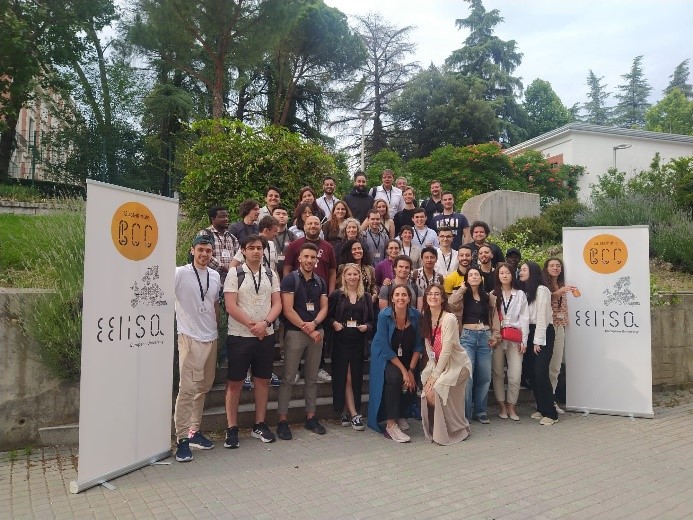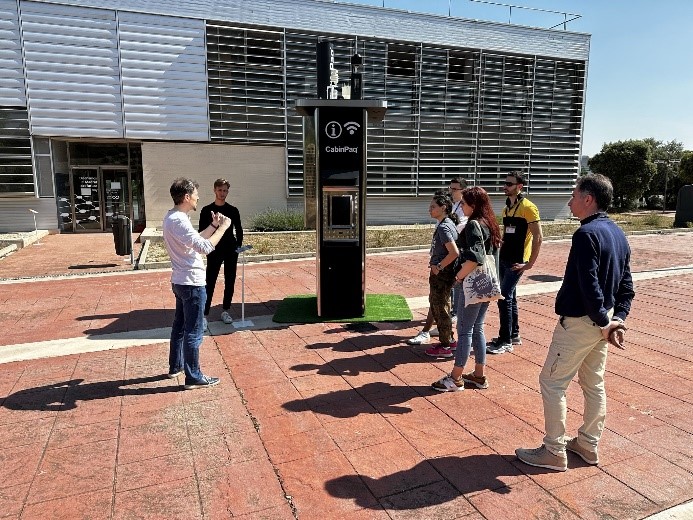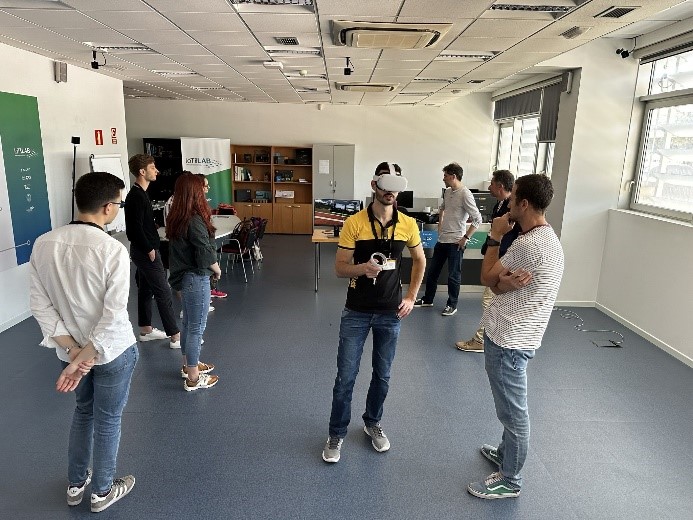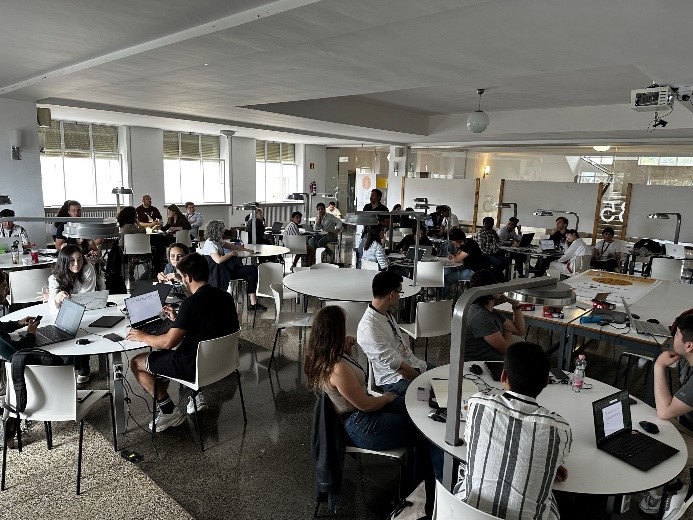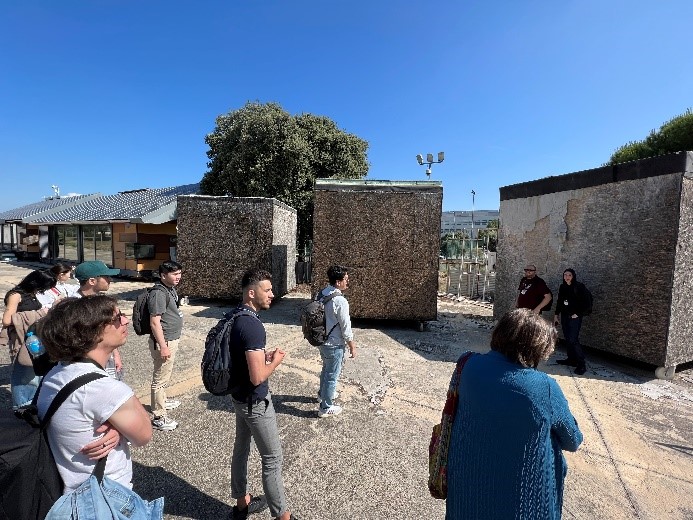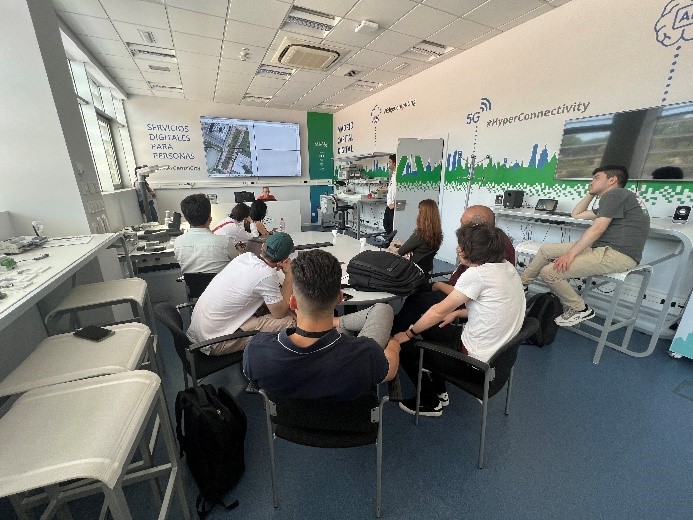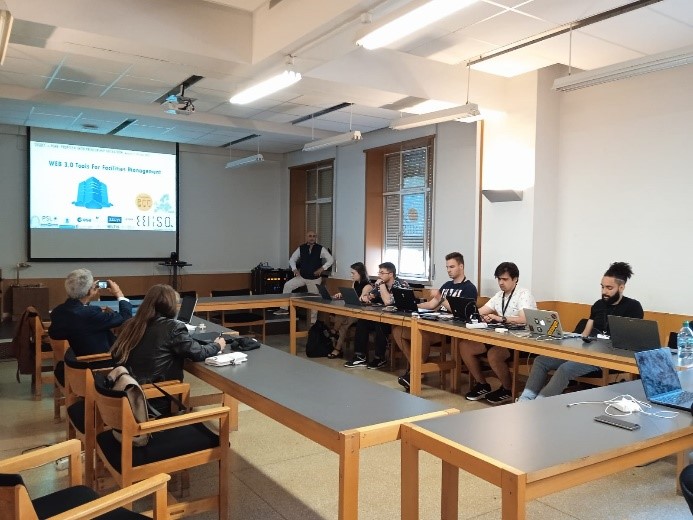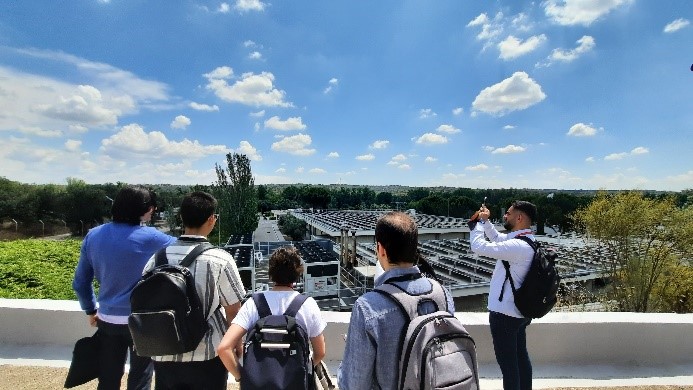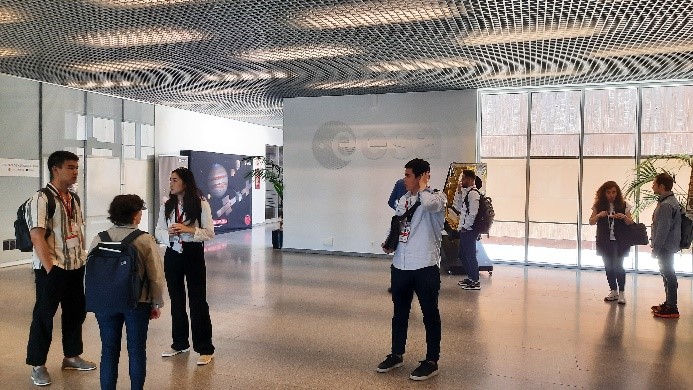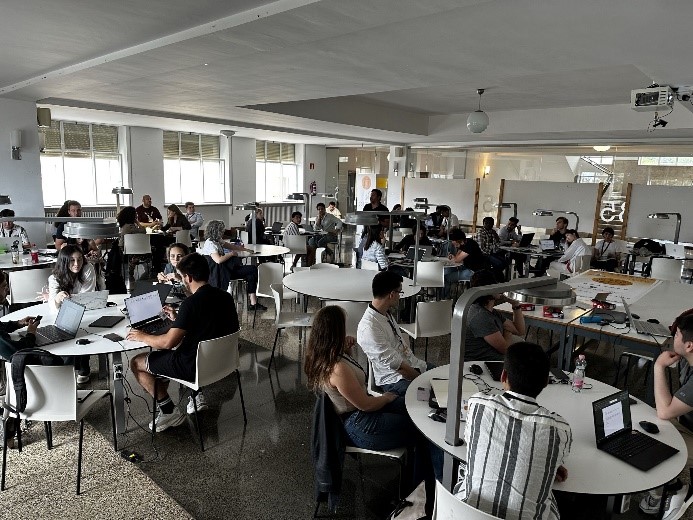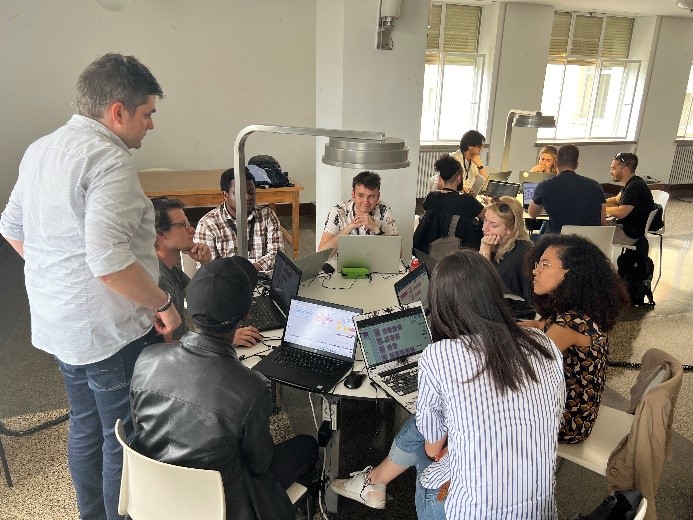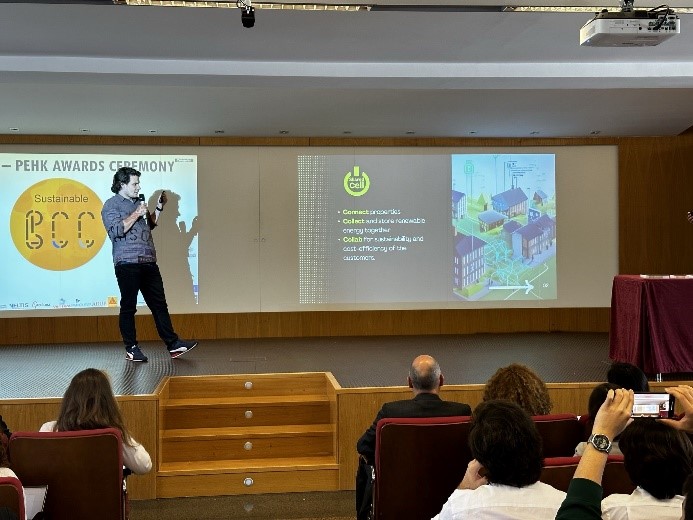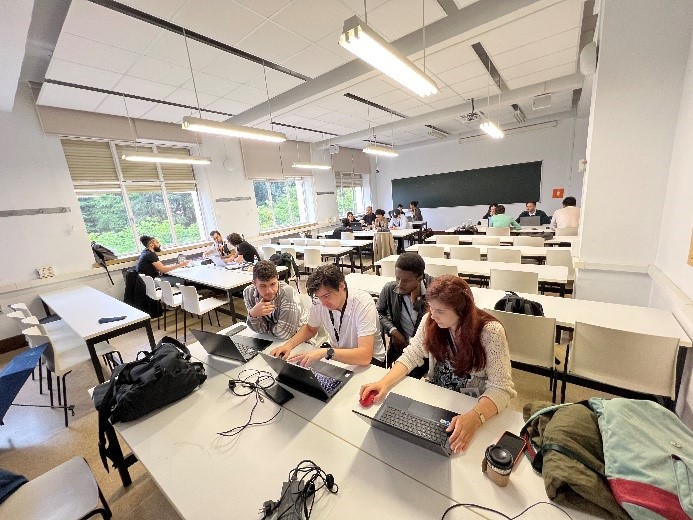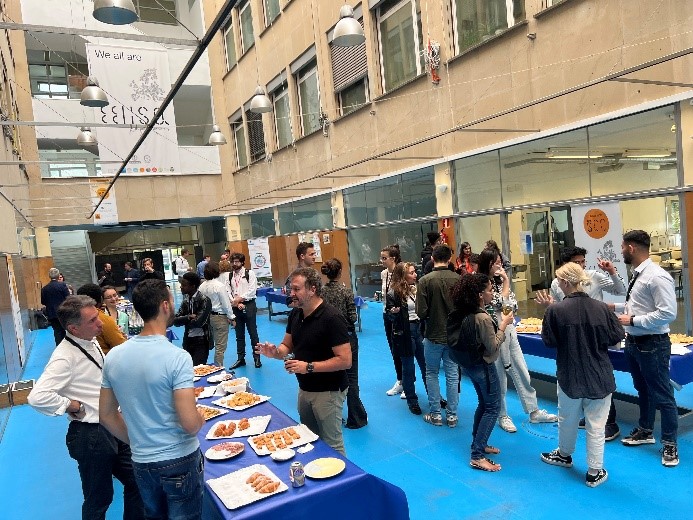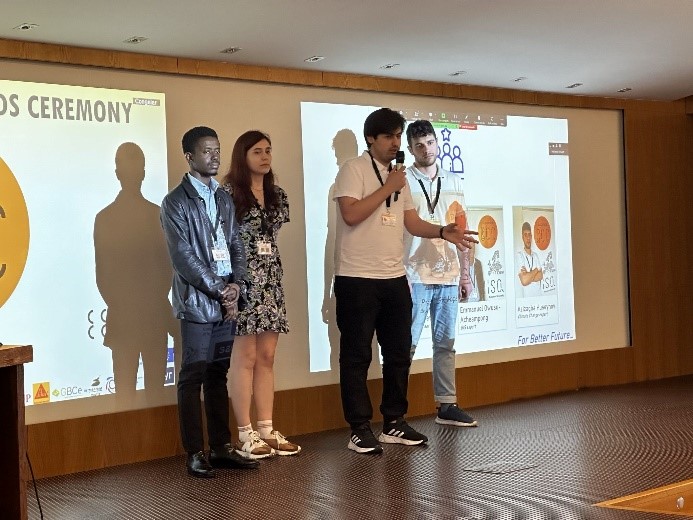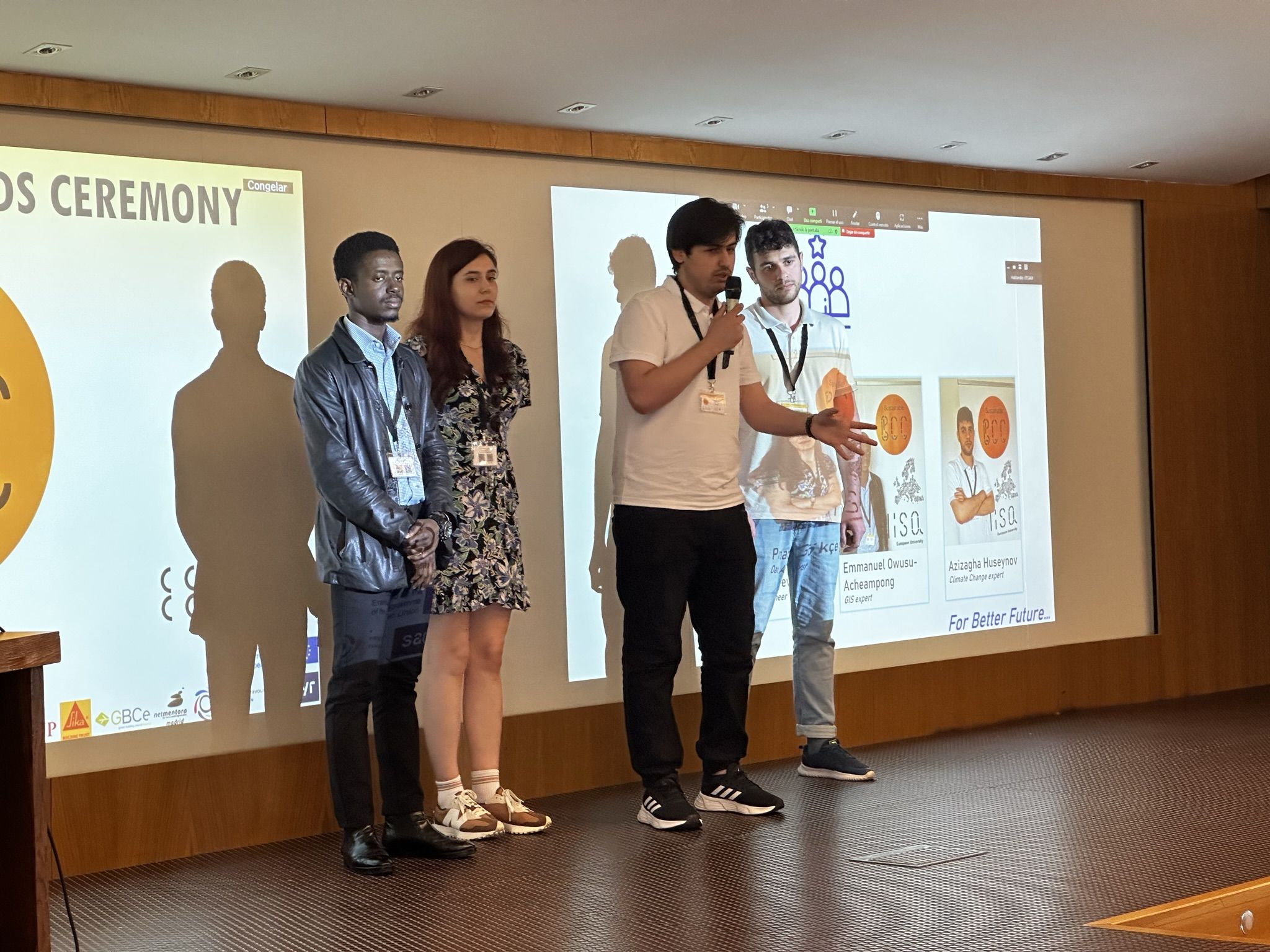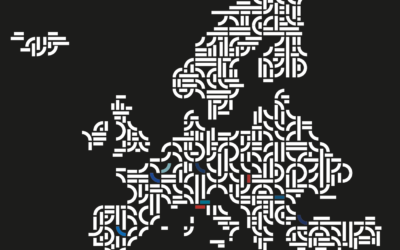In spring 2023, a new optional course called European Engineering Projectwork was launched at the Faculty of Civil Engineering of BME. The main objective of the course is to develop non-technical competences for engineering activities and to involve students in EELISA community activities.
The core of the student community of the subject is the students of the MSc program in Construction Information Technology Engineering, which started in fall 2022, who have applied their programming skills to building sensor networks, developing energy efficiency simulations and building smart houses. They were joined by students from the Master of Land Surveying and Geoinformatics, who worked together for a semester on workflows for product and service development in the field of sustainable environment and buildings. To crown the training, 24 BME students (including 6 Hungarians and 18 foreigners) joined 5 undergraduate students (3 from the ÉMK, 2 from the VIK) to participate in the SUSBCC-PEHK: PROPTECH Enterpreneurship Hackathon in Madrid from 5-8 June, organized by the Universidad Politécnica de Madrid (UPM) EELISA Sustainable Buildings, Cities and Communities community. The team of BME students was accompanied and mentored by two lecturers from ÉMK, Tamás Lovas and Balázs Nagy, who supervised their activities at the hackathon.
On the first day, the students in 5 groups were introduced to different sustainability-related organizations, research and developments (e.g. a visit to UPM Solar Decathlon buildings, IoT and smart city research labs, and the European Space Agency’s facility management office), which provided inspiration for the development of sustainability-related products that the teams worked on in the following days. All activities were led and supported by lectures from leading UPM trainers and professors. On the last day, the teams presented their results in 5-minute presentations, which were then awarded in a total of 8 categories by the organizers, sponsoring companies and EELISA. As BME had the largest student community, all teams included BME students.
For the students, the trip to Madrid was a great experience, not only in terms of developing non-technical competences, but also in intercultural terms, as they spent 4 days actively working with their Spanish, Turkish and French fellow students; friendships were formed, diploma project topics were set, and perhaps post-graduation activities were defined. The successful hackathon was an inspiration for all involved BME lecturers and staff to organize a similar international event at BME in the near future.
